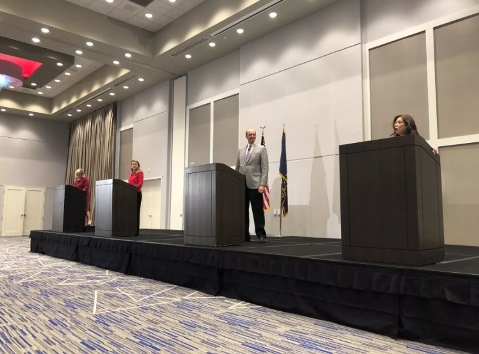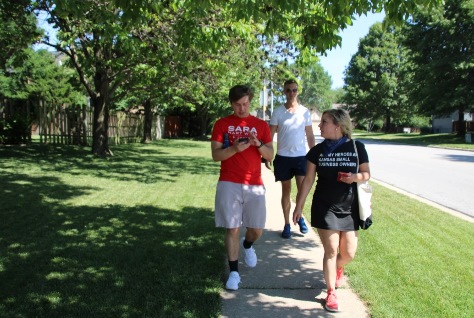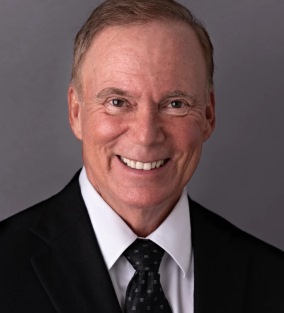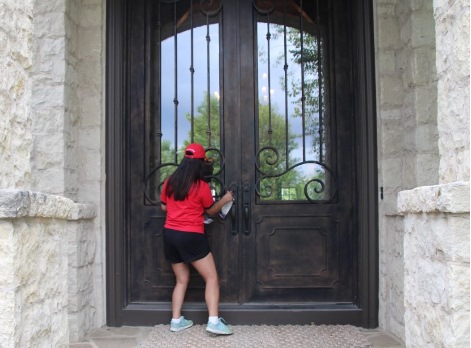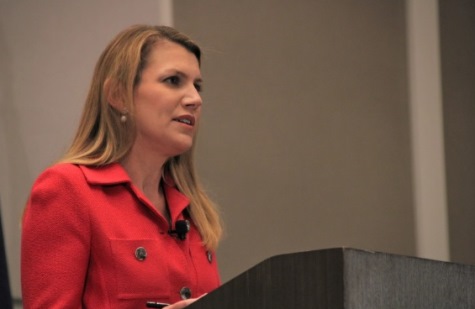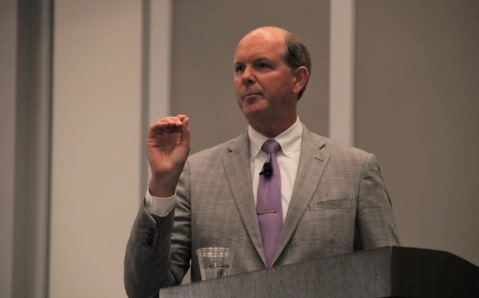State officials hope two labs in Johnson County could help Kansas boost its testing capacity dramatically for schools, nursing homes and asymptomatic people.
by Celia Llopis-Jepsen, Kansas News Service
Lenexa, Kansas — One lab has helped seven Kansas universities test tens of thousands of students, faculty and staff for COVID-19 for the fall semester. And all anyone needed to do was spit.
Saliva lab work has the potential to dramatically increase testing of asymptomatic Kansans with no known COVID-19 exposure, state health officials say. That’s a critical ingredient for stopping the pandemic.
Last week, Kansas health secretary Lee Norman suggested the state partner with labs such as Lenexa-based Clinical Reference Laboratory and a second Lenexa company that does saliva and other COVID-19 testing for major hospitals, MAWD Pathology Group.
“Anybody can spit into a tube. That would be a game changer,” Norman told a state task force. “That would really open up the floodgates.”
He suggested tapping the labs to help the state’s nursing homes and schools, and to regularly test large numbers of Kansans without symptoms, not just patients who turn up at doctor’s offices feeling sick.
Collecting saliva holds a few advantages over swabs that dip deep into one’s nasal passages. Most people can spit into a tube without help from a nurse or other medical professional decked out in protective gear.
Already, Kansas has surpassed its target of testing more than 60,000 people per month three months in a row, but Norman said “it’s not enough.” The state has focused largely on people with symptoms or exposure to known COVID-19 outbreaks — a triage level of testing that epidemiologists widely agree falls short of what’s needed.
To dramatically slow viral transmission, the Harvard Global Health Institute said last month that Kansas must more than triple the number of people tested daily to nearly 13,000, while keeping up social distancing and mask-wearing. Only five states are testing enough people to suppress the virus.
The state may already have the capacity to top that, MAWD president Samuel Caughron said. His lab can handle 10,000 to 15,000 tests daily, but doesn’t use its full capacity.
“We’ve been seeing, as other labs have, our volumes declining,” he said. “There is something of a disconnect between what could be, and what’s happening.”
The challenge for Kansas, he said, is creating a process that links organizations in need of mass testing to labs that can return results within a day or two.
Stocking up
Harvard experts have warned saliva testing could face supply shortages, too, just like tests that use nasal or throat swabs.
While waiting months for the U.S. Food And Drug Administration to authorize its tests, Lenexa’s Clinical Reference Laboratory used the time to install hard-to-get liquid-handling robots and squirrel away as many supplies as it could. Authorization came through July 30.
“Honestly, we’ve just been building inventory since the day this started,” CEO Bob Thompson said. “So we’re feeling really good about our supply chain.”
The company currently provides test results within 1-2 days.
Saliva tests (and saliva-sputum tests that require the person to cough before spitting) detect genetic material — RNA — from the coronavirus. That’s the same science used with deep nasal swabs, but collecting saliva is quicker in large populations like prisons, schools and colleges. It saves precious masks and gloves, and it’s a less unpleasant option for people who have to take the test repeatedly, such as nursing home residents, athletes and health care workers.
At the University of Kansas, saliva tests have detected more than 200 cases of COVID-19 so far, and revealed higher rates of the virus among fraternities and sororities. This week Douglas County health officials ordered residents of nine fraternity and sorority houses into two-week quarantine.
CRL in Lenexa has already processed 30,000 tests for seven Kansas schools, including KU, Emporia State University, Wichita State University, Fort Hays State University and Benedictine College — as well as 4,000 tests for four in Missouri.
The lab said it could handle several more thousand tests per day for Kansas. The company currently processes about 10,000 a day, with a focus on the Kansas and Missouri markets, and expects to reach 20,000 a day by mid-September.
It’s in talks with Kansas school districts, too, and recently inked a deal with Los Angeles Unified School District to join a bevy of labs assisting its 600,000-student school system. Minnesota is providing saliva tests (which aren’t from CRL) to all its schools, and announced this week it will spend nearly $15 million on a new lab for saliva samples.
The state lab in Topeka also plans to start processing saliva samples in-house, a Kansas Department of Health and Environment spokeswoman said Friday. It has the right equipment, but must first complete legwork to ensure its results would be valid.
For mass testing of largely asymptomatic people at places like colleges, CRL pools material from five people at a time to speed up the process. When a combined sample contains the virus, CRL then retrieves the five vials to retest each person’s saliva individually and pinpoint the source.
While CRL received FDA authorization, not all COVID-19 tests — saliva or otherwise — have that.
The backlogged agency allowed many tests onto market while awaiting review, and last week the Trump administration axed the requirement for federally regulated labs with advanced capabilities to undergo FDA scrutiny.
MAWD’s test, a variation of the Centers for Disease Control and Prevention method, does not have FDA authorization yet but the company may still pursue it.
Pittsburg State University uses Cytocheck, a lab in Parsons, but didn’t answer questions about whether the FDA has greenlighted its tests. Cytocheck wouldn’t speak to the Kansas News Service about its product.
Celia Llopis-Jepsen reports on consumer health and education for the Kansas News Service. You can follow her on Twitter @celia_LJ or email her at celia (at) kcur (dot) org. The Kansas News Service is a collaboration of KCUR, Kansas Public Radio, KMUW and High Plains Public Radio focused on health, the social determinants of health and their connection to public policy.
Kansas News Service stories and photos may be republished by news media at no cost with proper attribution and a link to ksnewsservice.org.
See more at https://www.kcur.org/news/2020-08-28/saliva-is-making-it-possible-to-quickly-test-tens-of-thousands-of-kansans-for-coronavirus.

